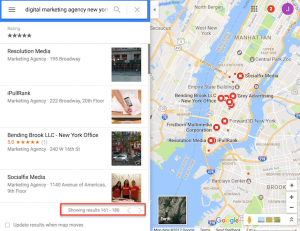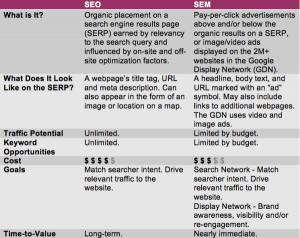— December 26, 2017

Monsterkoi / Pixabay
Too often we think of performance and continuous improvement incorrectly. While we and our managers (who are trying to coach us) may be well intended and highly motivated, we set ourselves up for failure from the outset.
One of the problems is we try to change too much. It’s kind of like some bad coaching I got on my golf swing. Rather than going to a professional and paying for coaching, I asked a friend who had a very low handicap advice me on my swing. He watched me at the driving range, then said, “Dave you have to do these 5 things….”
He was absolutely correct, I was doing at least 5 things wrong. But what happened was that I tried to correct those 5 things all at once. You’ve probably guessed it, the results were even worse! I was trying to do too many things at one time, I was getting confused, and just failed.
As individuals and managers, we often make the same mistake, when we look at performance improvement, we try to attack too many things at one time, not focusing on improving execution in one thing first, the moving to the next, then to the next.
We would be far more effective in improving our performance or that of people on our teams by focusing on and mastering one thing at a time.
The second area, is that we try to achieve too much in too short a time. Very often, I sit with executives that want to drive huge performance improvements, as a result they set goals that drive are so high people fail. We try to make giant steps in performance improvement, inevitably failing, where lots of little steps, over the same period, may be more effective.
For example, “You need to double the number of prospecting calls you make every day.” There are endless examples of these. They may be right, it may be necessary to double prospecting calls, but it takes a lot of things to do this and to make that doubling effective. Sure people can dial twice as many numbers–but probably not improve results. Sure, people can have twice as many conversations, but if they aren’t talking to the right people about the right things, they won’t improve their results.
One of the things we miss in performance improvement is the cumulative impact of very small improvements we make day by day.
To illustrate this, let’s do the math between two performers. Let’s say one is 99.5% effective in what they achieve every day, the other is 99.9% effective. Most of us would say, these are each top performers. Most of us would say the difference is negligible.
But at the end of a month (let’s assume a 20 day working month), the cumulative difference in performance is 8% and the end of the year, the difference is over 250%.
It’s astounding! A very small improvement in performance, every day, has a profound impact on our overall performance over time!
Perhaps, we would achieve more, if we made performance improvement simpler. What if we looked at ourselves, at our own personal improvement, what if we said, “What do I need to do differently every day to improve by a fraction of a percent every day?” Those daily incremental improvements stack up and accumulate, driving massive changes over a month and year.
Running the same math, just saying, “What if I improve my performance by 0.1% every day?” At the end of the month, the change would be a little more than 2%, at the end of the year, it would be 8%.
How do we do this?
Well first, we need to measure ourselves, we need to track a few simple numbers to understand our current performance. They needn’t be complex. While it would be nice to have hard data, they needn’t be hard data driven. For example, an honest Yes/No to the question: “Did I accomplish more in each customer call I made today than (December 27, 2017),” could be very powerful. It gives us a simple measure of whether we are getting better.
Of course, we could leverage data provided by many of the systems we use, but we have to be cautious in how we apply them. ” Did I make more calls today than (December 27, 2017),” is a very bad measurement. We need to put an outcome dimension to that to drive tremendous improvement. So, “Did I make more calls achieving my desire outcome than I did (December 27, 2017),” is much more powerful in driving performance improvement.
Once we start tracking ourselves, again, it just needs to be one simple measure, as long as you are being brutally honest with yourselves, then we need to know, “How do I get better?”
It’s really hard to do this by ourselves.
We can go to training and get the knowledge of how to get better. Likewise, we can read books or blogs to get that knowledge. But having the knowledge is insufficient. It’s how we apply that knowledge that drives performance improvement.
And that’s where we need help. That’s where coaching comes into play, having someone that can observe what we are doing, help us understand that, and help us improve in how we apply that knowledge.
This is the magic of great managers and leaders who do great coaching. They recognize that performance improvement is more successful if we get a little bit better every day. They don’t try to get massive change, they aren’t like my friend coaching me on my golf swing. While my friend was right, his “coaching” didn’t improve my performance, it made it worse.
To do this, it takes deep understanding and keen observation on the part of the manager. You don’t do this by analyzing numbers from behind your desk. You don’t do this, by dictating all the things that need go be fixed.
We do this by working closely with each person, watching them, observing them, understanding each person. It takes the recognition that the little thing that will cause each person to get a little better every day, is different for each person.
Little changes, little improvements every day have profound impacts on performance improvement. Set a goal for yourself, have your people set goals for themselves. It doesn’t have to be big. Less than 0.5% improvement every day, makes you over 8% better at the end of the month, and over a year makes you 250% better.
Imagine the impact of this little change done every day.
Business & Finance Articles on Business 2 Community
(68)
Report Post






